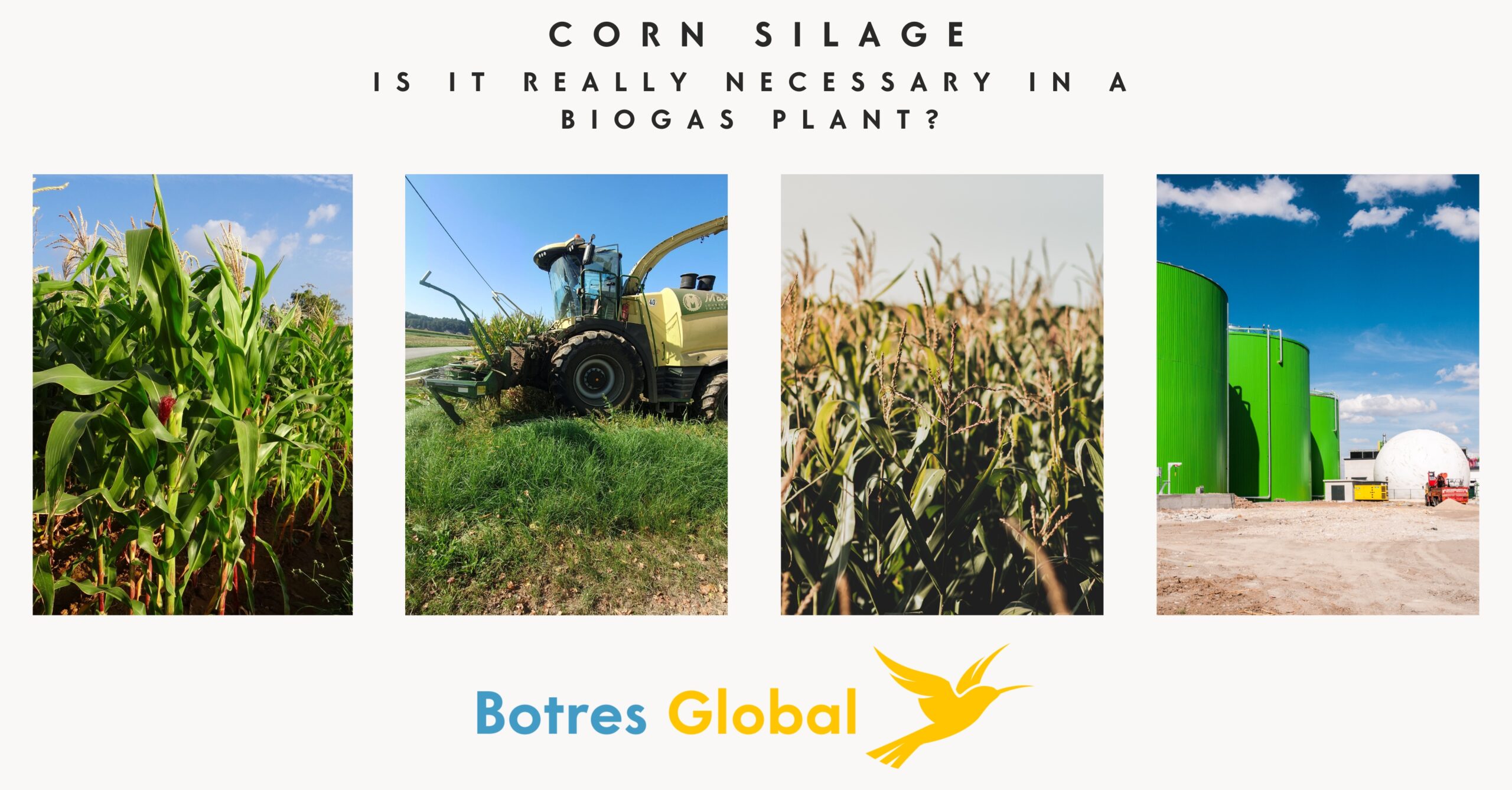Biogas is an alternative energy source to natural gas with many potential benefits! However, it’s important to be aware of the environmental implications of using plants such as energy crops for biogas production. The cultivation and use of these crops can lead to unexpected problems, such as deforestation and the destruction of natural habitats, apart from competition to food production. It’s therefore crucial to recognize the complexity of this energy source and find sustainable solutions.
What are energy crops?
Energy crops are plants grown specifically for the purpose of producing energy. These crops can be used for different forms of renewable energy, such as biogas. The most common energy crop is maize in form of silage. However, the used energy crops for biogas production differ from country to country. In our latitudes (Europe), energy crops such as maize silage are mainly cultivated. In other countries, for example, sugar cane is also widely used.
Problems with growing energy crops for biogas production
Energy crops are seen as a promising solution to meeting the world’s growing demand for renewable energy and reducing dependence on fossil gas. However, there are a number of problems associated with the use of energy crops for biogas production. One of the main issues is the amount of land required to grow them. A lot of land is already needed to grow animal feed and food. If we add energy crops to the mix, this can lead to deforestation and destruction of natural habitats or creates competition to food production.
In addition, energy crops require large amounts of water and can contribute to soil erosion. Growing such large quantities of energy crops also requires large amounts of fertilizers. Pesticides are needed as well, which can have negative environmental impacts such as water pollution, and nitrous oxide emissions. Moreover, transporting energy crops to biogas plants can result in high carbon emissions. This undermines the environmental benefits of biogas production.
This is the reason, why the RED II is considering low CO2 reduction potential for energy crops. In practice this means that many biogas plants are supposed to transition from energy crops to organic waste and residues to fulfil the required CO2 reduction targets for renewable energy. Additionally, all new plants should be designed as true multi-feedstock plants without the need for energy crops at all.
Alternatives to energy crops
While energy crops may seem like a good renewable energy solution at first glance, a closer look reveals that they are not very sustainable. Fortunately, there are alternatives to energy crops, such as using organic waste to produce biogas. This includes feedstocks such as food or kitchen waste and animal manure, which can be converted into biogas through anaerobic digestion.
By using waste, we can reduce the negative impacts associated with growing energy crops while still producing clean energy. It is therefore important to carefully consider the environmental impact of energy crops and explore alternative solutions for biogas production. In this way, we can ensure that we are not sacrificing one aspect of the environment for another.
Why green isn’t always clean?
In conclusion, while energy crops may seem like a “green” solution for biogas production, they are not always as clean as they seem. The problems associated with growing energy crops, such as land use, displacement of food crops, and increased use of fertilizers and pesticides, can have negative environmental and social impacts.
It is important to consider the full lifecycle of energy crops and their impact on the environment before deciding to invest into them. Fortunately, there are alternatives to energy crops for biogas production, such as the use of organic waste or agricultural residues. These alternatives not only provide a more sustainable solution, but also reduce waste and promote a circular economy. It is important to prioritize sustainable and environmentally friendly solutions for energy production to ensure a cleaner and healthier future for our planet.
#alternativetoenergycrops #sustainability #wastetoenergy #biogas #circulareconomy
